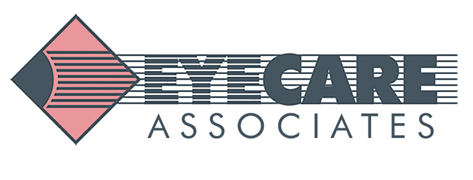Do You Want Relief From Dry Eyes?
Posted by: Eyecare Associates of New Orleans in Dry Eye, Eye Health on November 7, 2023
Dry eye disease is a common condition occurring when your tears cannot provide lubrication for your eyes. Tears can be scarce to produce for many reasons, which can cause your eyes to feel uncomfortable. The tear instability leads to inflammation, which may damage the eye’s surface. You may experience dry eyes in certain situations, such as looking at a computer screen for hours, the fall wind, smoke, or an arid climate. The best way to determine what your eyes genuinely suffer from is to be correctly diagnosed by your eye doctor. We are here to partner in your eye health and share the process of dry eye diagnosis.
How Is Dry Eye Diagnosed?
Your eye doctor will begin with a comprehensive eye exam. The examination will include your eyelids, the eye’s surface, and how you blink.
There are many different tests to help diagnose dry eyes. Your eye doctor will determine what is best for your eye health needs. Here are a few tests and procedures used to determine the cause of your dry eyes:
- A test to measure the volume of your tears. Your eye doctor may measure your tear production using the Schirmer test. This test shows blotting strips of paper under your lower eyelids. After five minutes, your doctor measures the amount of strip soaked by your tears. Another option for measuring tear volume is the phenol red thread test. In this test, a thread filled with pH-sensitive dye (tears change the dye color) is placed over the lower eyelid, wetted with tears for 15 seconds, and then measured for tear volume.
- Quality of your tears test. Other tests use special dyes in eyedrops to determine the surface condition of your eyes. Your doctor looks for staining patterns on the corneas and measures how long it takes before your tears evaporate.
- A tear osmolarity test. This type of test measures the composition of particles and water in your tears. With dry eye disease, there will be less water in your eyes.
- Tear samples to look for markers of dry eye disease, including elevated matrix metalloproteinase-9 or decreased lactoferrin.
Does Dry Eye Go Away?
Treating Dry Eye by Adding Tears
Your eye doctor might suggest you use artificial tears. These are eye drops that are like your own tears. Your eye doctor will instruct you when to use and what brand is suited for your eye health needs.
Stop Dry Eye by Saving Tears
Your eye doctor may suggest blocking your tear ducts. Blockage of your tear ducts keeps the natural tears in your eyes longer. These tiny silicone or gel plugs (called punctal plugs) may be inserted into your tear ducts and can be removed later as needed. Your eye doctor may prescribe an eyedrop medication. Eyedrop medication will also help your eyes make more natural tears.
How To Prepare for Your Eye Doctor Appointment?
- List any symptoms you are experiencing, including any that may seem unrelated to why you scheduled the appointment.
- List essential personal information, including recent life changes and family eye health history.
- Make a list of all medications, vitamins, and supplements that you are taking.
- List questions to ask your doctor.
What to Do in the Meantime Before Your Appointment
- If possible, try not to use a hairdryer.
- Stay away from high-heat rooms. As we are in the fall season and approaching winter weather, add moisture to the air with a humidifier.
- Protect your eyes from the drying wind by wearing sunglasses outside.
To relieve your symptoms while you wait for your appointment, try over-the-counter lubricating eyedrops (artificial tears) and avoid those that advocate reducing eye redness. Eyedrops that minimize eye redness can cause additional eye irritation.
We are here to help keep your eyes feeling good and healthy! Our highest priority is our patient’s eye health.


 Online Bill Pay
Online Bill Pay